Search Results
Showing results 1 to 20 of 22
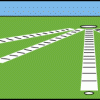
The Size and Distance of the Planets
Source Institutions
In this activity, learners investigate the concepts of relative size and distance by creating a basic model of the solar system.

The Thousand-Yard Model
Source Institutions
This is a classic exercise for visualizing the scale of the Solar System.

DIY Weather Vane
Source Institutions
In this activity, learners will engineer their own weather vane. This activity includes step-by-step instructions with pictures and a "What's Happening?" section explaining how the activity worked.

Invent a Plant
Source Institutions
In this activity, learners construct models of plants that are adapted to living under specific environmental conditions.
Making An Impact!
Source Institutions
In this activity (on page 14 of PDF), learners use a pan full of flour and some rocks to create a moonscape.

Solar Water Heater
Learners work in teams to design and build solar water heating devices that mimic those used in residences to capture energy in the form of solar radiation and convert it to thermal energy.
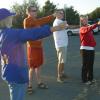
Does the Moon Rotate?
Source Institutions
This fun and simple hands-on astronomy activity lets learners make 3-dimensional models of the Earth and Moon.
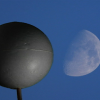
Why Does the Moon Have Phases?
Source Institutions
In this activity, learners use a simple 3D model to discover why the Moon has phases.
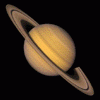
Build a Solar System
Source Institutions
In this activity, learners make a scale model of the Solar System and learn the real definition of "space." Learners use the online calculator to create an appropriate scale to use as a basis for thei
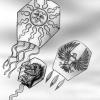
Sled Kite
Source Institutions
In this activity, learners build a sled kite that models a type of airfoil called a parawing.
Up, Up and Away with Bottles
Source Institutions
In this activity, learners make water rockets to explore Newton's Third Law of Motion. Learners make the rockets out of plastic bottles and use a bicycle pump to pump them with air.

Floodplain Modeling
In this design-based lesson, learners study flood dynamics as they modify a riverbed with blockages or levees to simulate real-world scenarios.

Saguaro Nest Cavities
Source Institutions
This activity (on page 3 of the PDF under GPS: Cactus Activity) is a full inquiry investigation into how some desert birds keep their cool.
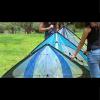
Kites
Source Institutions
This activity (on page 2 of the PDF under SciGirls Activity: Kites) is a full inquiry investigation into how a kite’s shape affects its performance.
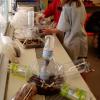
Biodomes Engineering Design Project
In this design-based activity, learners explore environments, ecosystems, energy flow and organism interactions by creating a model biodome. Learners become engineers who create model ecosystems.
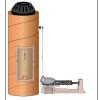
Rocket Wind Tunnel
Source Institutions
In this activity, learners evaluate the potential performance of air rockets placed inside a wind tunnel.

Lift Off!
Source Institutions
This activity (on page 2 of the PDF under SciGirls Activity: Lift Off) is a full inquiry investigation into the engineering challenges of sending scientific sensors into space.
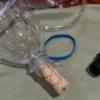
Water Rocket Launch
Source Institutions
In this activity, learners explore rocketry and the principals of space flight.
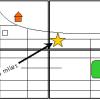
Solar System in My Neighborhood
Source Institutions
In this activity, learners shrink the scale of the vast solar system to the size of their neighborhood.
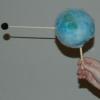
Exploring Strange New Worlds
Source Institutions
This fun and simple hands-on astronomy activity lets learners explore model planets (that they or an educator will create), using methods NASA scientists use to explore our Solar System.
